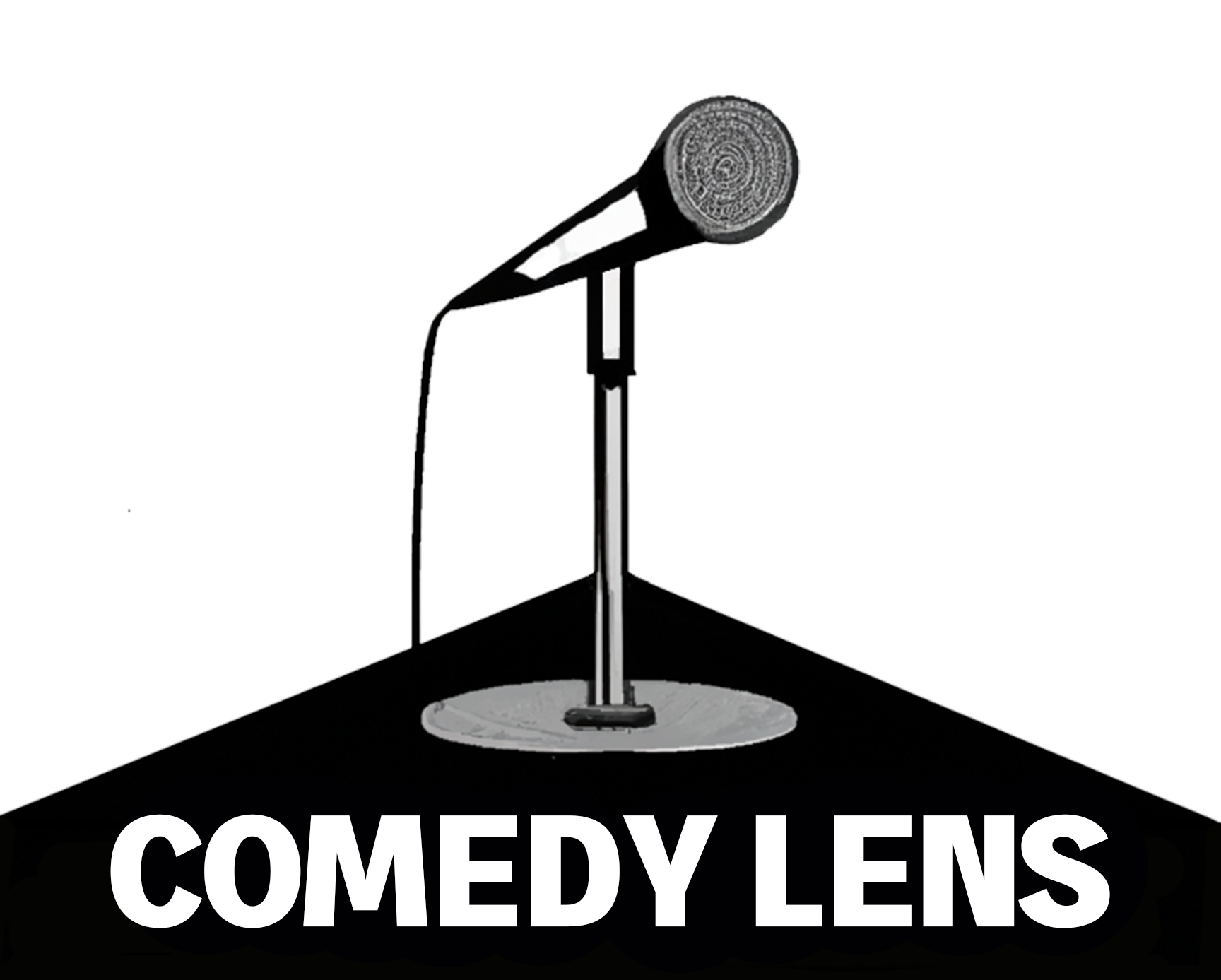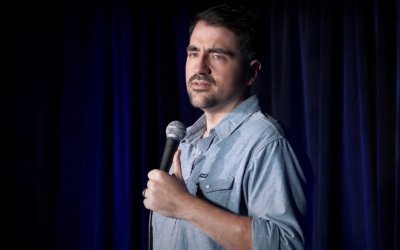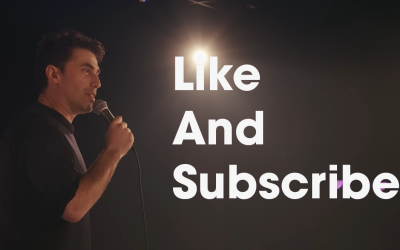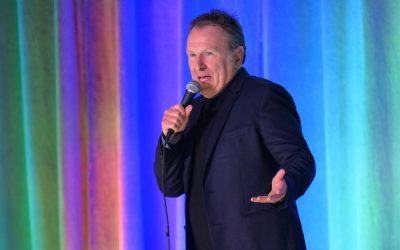Stand-up comedy is an art form that relies on the ability to entertain and engage an audience, often by pushing the boundaries of what they expect. When a comedian “kills” on stage, it refers to a euphoric feeling of exhilarating success that comes from connecting with the audience in a way that generates laughter and applause. This expression has roots in the long history of stand-up comedy where entertainers strive for memorable performances that resonate with their audience.
In the world of stand-up, the audience’s reaction can make or break a performance. A comedian must strike a delicate balance between being thought-provoking and entertaining, walking a tightrope of sensitivity and humor. When they succeed in this endeavor, the experience is often referred to as “killing on stage.” This term describes the powerful connection between the performer and the audience as they share in the humor and laughter that follows well-timed, cleverly-crafted jokes.
Key Takeaways
- ‘Killing’ on stage refers to a comedian’s success in connecting with the audience and generating laughter.
- Striking a balance between humor and sensitivity is essential for a memorable stand-up performance.
- Comedians face numerous challenges, such as hecklers and changing societal norms, which can impact their ability to ‘kill’ on stage.
The Origins of ‘Killing’ in Stand-Up Comedy
History
The term “killing” in stand-up comedy refers to when a comedian delivers such an outstanding performance that the audience is left in fits of laughter, metaphorically killing them with humor. The origins of this term can be traced back to the early days of stand-up comedy, with its roots in American vaudeville and minstrel shows during the 19th century.
As the comedic tradition evolved from vaudevillian slapstick and monologues to the more modern form we know today, so too did the way comedians talked about their performances. When a comedian performed particularly well, they would describe it as “slaying” or “killing” the audience, which over the decades became a widely accepted phrase that is still used today.
Evolution of the Term
In the early days of stand-up, the use of the term “killing” was somewhat more literal, as audiences often endured uncomfortable conditions and rowdy environments. As stand-up comedy matured, jokes became more sophisticated, and so did the art of “killing” on stage. Club owners and comedians alike recognized the value of a performer who could consistently leave their audience helpless with laughter.
As stand-up comedy continued to evolve over the decades, the term “killing” adapted with it, remaining relevant to the ever-changing landscape of humor and performance while retaining its roots in the early days of comedic entertainment. At its core, the term “killing” still refers to a comedian’s ability to consistently deliver top-notch performances that keep audiences laughing well after the jokes have been told.
In conclusion, the origins of the term “killing” in stand-up comedy can be traced back to the 19th century and its evolution through the decades. The term reflects not only the strength of a comedian’s performance but also the evolution of comedic styles and audience desires. So, the next time you see a stand-up comedian “killing” it on stage, know that they’re continuing a long-standing tradition of comedic excellence.
What Does It Mean to Kill on Stage?
The term “killing” in the world of stand-up comedy is a coveted accomplishment, and it carries a unique meaning. When a comedian “kills” onstage, it means they’ve captivated the audience with consistent, powerful laughter throughout their performance. It’s every comedian’s dream to experience the thrill of fully engaging their audience with impeccable timing, delivery, and content.
Killing on stage is an elusive concept for many comedians, as it requires a delicate balance of various skills. Mastering their material, connecting with the audience, and handling any unexpected scenarios are all crucial factors in achieving this goal. Additionally, the atmosphere and energy of the room play a significant role in whether a performance is considered a kill or not.
Audience Perspective on Killing
Audiences attend comedy shows with the primary expectation of being entertained. If a comedian can elicit hearty bouts of laughter and leave the room buzzing with energy, it’s safe to say they’ve slayed their set and killed on stage.
From an audience viewpoint, a comedian killing on stage means enjoying a performance that keeps them laughing nonstop and wanting more. It’s the ability to create a memorable experience they can recount to their friends later, insisting they catch the next gig featuring the hilarious comedian.
In conclusion, the term “killing” on stage serves as a benchmark for both comedians and audiences alike. For the performer, it signifies a mastery of their craft, and for the audience, it represents a night well spent. With this in mind, it’s always a win-win situation when a comedian manages to kill on stage.
From Killing to Dying: The Opposite Effect
Why Some Comedians Struggle
“Killing” is the ultimate aim of every stand-up comedian, the achievement of sending the audience into fits of laughter. However, there is a flip side to this euphoria: “dying” or “bombing” on stage. This unfortunate scenario occurs when comedians struggle to engage their audiences, leaving them staring blankly or, even worse, booing.
Several factors contribute to comedians’ struggles during a performance. For example, a joke that may have “killed” in one setting might completely flop in another. Timing, delivery, and context are all integral aspects of a successful stand-up routine. When any of these components falter, comedians may find themselves “dying” on stage, leading to a sense of failure and a potential knock to their careers.
Moreover, comedians who rely heavily on self-deprecating humor, a popular comedy form, might face extra hurdles in maintaining the delicate balance between laughter and pity. When blurred, this line can turn an intended funny moment into a somber one.
Bouncing Back After Bombing on Stage
Resilience is key for stand-up comedians. A single bomb on stage can be disheartening but should not mark the end of a promising career. In fact, experiencing failure can be a rite of passage for many comedians on their journey to success. To bounce back, comedians must learn to adapt their jokes, polish their delivery, and ultimately better connect with their audience.
Embracing feedback, both positive and negative, from audience members and peers alike, can be an invaluable tool in refining one’s craft. Additionally, diversifying material or making adjustments to the set’s structure can also prove effective in ensuring success in the future. In this high-stakes world of stand-up comedy, a touch of humility and willingness to learn can be the difference between continued career growth and stagnation.
For more information on bombing, and how to handle it on stage, check out our comprehensive article here.
Comedian vs. Hecklers: Handling Tough Situations
When Hecklers Attack
In the high-stakes world of stand-up comedy, comedians often find themselves facing a common foe: the dreaded heckler. These brazen audience members aren’t afraid to interrupt performances with their unsolicited commentary or verbal abuse. While some hecklers might genuinely think they’re improving the show, their interruptions can have a significant impact on both the comedian’s performance and the experience of fellow audience members.
One of the key challenges for comedians is learning how to effectively deal with hecklers to regain control of their performance. Maintaining a sense of humor is crucial, as a witty response can not only diffuse the situation but also showcase the comedian’s ability to think on their feet.
Comedians’ Best Responses to Hecklers
In the face of adversity, some comedians truly shine, transforming negative interactions with hecklers into moments of comedy gold. Masterful responses often strike the perfect balance between humor and assertiveness, allowing the comedian to regain control without alienating the audience.
Here are a few examples of memorable tactics utilized by comedians:
- The clever comeback: A well-timed and witty response can retain control of the situation. Rather than going on the defensive, the comedian can demonstrate their intelligence and quick-thinking skills, all while keeping the audience laughing.
- The self-deprecating turn: Some comedians prefer to embrace the heckler’s comments and turn them into self-deprecating humor. This can disarm the heckler by demonstrating the comedian’s humility and willingness to laugh at themselves.
- Audience involvement: By involving the rest of the audience, comedians can gain support and reinforce their authority on the stage. In some cases, other audience members may contribute to shutting down the heckler.
Ideally, a comedian’s response should be tailored to the specific situation and their own comedic style. No matter what approach they choose, the goal remains the same: to regain control of the performance and keep the audience laughing. So, while dealing with hecklers is undeniably a challenge, it also offers comedians the opportunity to showcase their creativity, resilience, and adaptability in the face of adversity.
Social Media and New Challenges in Stand-Up Comedy
Instagram and Twitter’s Impact on Comedians
In the age of social media, stand-up comedians have found themselves grappling with platforms like Instagram and Twitter, which both offer new opportunities and challenges. These platforms have allowed comedians to promote their work, share snippets of their sets, and even test out new material on the fly. However, with great power comes great responsibility – and an even greater chance of receiving backlash for an off-color joke.
Comedians must now navigate the digital minefield where a seemingly harmless tweet or Instagram post can quickly spiral into a career-damaging controversy. It’s no longer just about timing and punchlines; comedians must also be mindful of their online presence and the potential reach of their content.
Navigating Cancel Culture in Comedy
Cancel culture, the practice of collectively boycotting an individual for alleged offensive actions or statements, has added yet another layer of complexity to comedians’ art of pushing boundaries. It seems the virtual audience has become less forgiving and more likely to call out content deemed inappropriate or offensive.
In the world of stand-up comedy, poking fun at stereotypes and addressing taboo topics has long been the norm. Nonetheless, in the age of cancel culture, comedians face potential public backlash and even career consequences for crossing the line.
To survive and thrive in this brave new comedic world, comedians must adapt. They must:
- Mind their online presence: This includes watching what they post, share, or even like, as any of these actions can come under fire.
- Weigh their words: It’s essential they consider the potential impact of their material, especially when dealing with sensitive subjects. A joke that kills one night may lead to being canceled another.
- Be prepared for backlash: Comedians should have a strategy for handling criticism when it comes, responding thoughtfully, and adapting their material as needed.
Yes, social media has its challenges, but stand-up comedians are no strangers to adversity. They’ve always walked that fine line between humor and offense. While navigating cancel culture may require a new kind of artistry, talented comedians will find a way to make ’em laugh, pushing boundaries while staying endearingly un-canceled.
Politics and Comedy: Walking the Line
Edgy Material: Crossing the Line?
In the realm of stand-up comedy, touching on politics can be a tightrope walk. Comedians often face challenges in balancing edgy material with the risk of being too offensive or rubbing some sensitive political egos the wrong way. Yet, this delicate dance can create some of the most groundbreaking and memorable moments in comedy history. Take, for example, the boundaries between politics and stand-up comedy that are continuously being redefined.
As they navigate this tricky terrain, comedians must ask themselves: “How far is too far?” In search of that golden ticket laugh, they may push boundaries or venture into taboo territory. However, there’s a fine line between having an edge and striking a nerve. Some comedians have successfully taken a jab at political figures while others have found themselves at the mercy of public backlash.
Political Correctness vs. Raw Comedy
In the age of sensitivity, political correctness stands as a formidable GIANT in the path to earning those much-desired belly laughs. Comedians are on a constant quest to adapt their material without sacrificing their raw, unfiltered essence. Many comics have expressed concern over cancel culture limiting their creative freedom.
Arguments have emerged over whether stand-up comedy inherently leans left-wing, with its political bias being debated in various corners. Yet, navigating these complexities can result in masterful performances revealing society’s hypocrisies and biases.
As the line between politics and comedy blurs, the impact of humor on political discourse cannot be denied. Comedians’ desire to “kill it” on stage can lead them on a treacherous journey, but doing so just might bring them closer to uncovering that elusive balance between political correctness and raw, unadulterated comedy.
A New Era of Comedy
In recent years, there has been a growing sentiment that cancel culture has run its course, and adaptive comedians have emerged better for it. Audiences appear hungry for comedy that challenges societal norms and pushes boundaries. Comedians have risen to the occasion, delivering the kind of edgy, thought-provoking material that audiences hunger for.
However, walking the line between political correctness and raw, unfiltered comedy remains a challenge for some. Comedians must stay up-to-date with cultural movements and constantly adapt their material to avoid crossing the line into offensiveness while still delivering the kind of provocative humor that audiences crave.
Despite these challenges, comedians continue to use humor to address sensitive political issues and spark important conversations. As the line between politics and comedy becomes increasingly blurred, the impact of humor on political discourse cannot be denied.
So while the world of stand-up comedy may always be a tricky one to navigate, comedians are rising to the challenge, delivering the kind of edgy, thought-provoking material that audiences crave. And as they continue to push boundaries and challenge societal norms, we can’t wait to see what they come up with next.
Final Thoughts
In the world of stand-up comedy, there’s a certain terminology that comedians use to describe their on-stage triumphs. When a comedian says they “killed” on stage, it paints a vivid picture of what transpired during their performance. In the context of stand-up comedy, “killing” can evoke feelings of both euphoria and relief, as it signifies that the comedian successfully connected with the audience and made them laugh. Laughter is, after all, the raison d’être of any stand-up routine.
Comedians often use colorful language like “slayed”, “crushed”, or “destroyed” to emphasize the impact of their performance on the audience. This creative twist on vocabulary lends a playful yet competitive spirit to the comedy scene. One might argue that the use of such language reflects the high-pressure nature of the job, but it also serves to illustrate the deep satisfaction a comedian feels when they conquer an audience.
In the comedy realm, it’s no secret that the audience can make or break a performer’s confidence. The energy generated from laughter helps fuel the comedian’s performance, pushing them further to bring out their best, honing their craft, and making the experience memorable for all involved. A “killed” audience signifies a job well done, a night to remember, and a potentially more significant following for the comedian.
So, the next time you hear a stand-up comic brag about “killing it” on stage, take a moment to appreciate the artistry, wit, and courage that go hand in hand with this entertaining yet demanding profession. Laughter is contagious, and in the hands of a skilled comedian, it becomes a lethal weapon – at least metaphorically speaking. Enjoy the show!
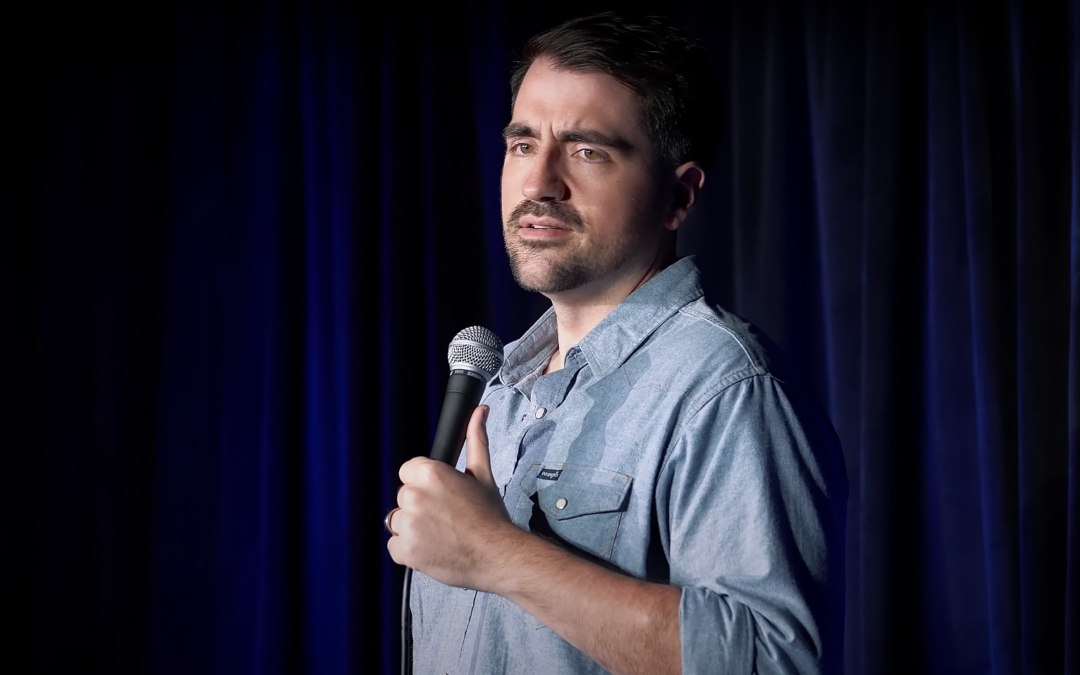
Trae Crowder Releases New Comedy Special: ‘Trash Daddy’
Comedian Trae Crowder, known for his viral videos as the "Liberal Redneck," has once again taken the comedy world by storm with his sophomore stand-up special, Trash Daddy. Released on YouTube via 800 Pound Gorilla Media on March 13, 2025, this one-hour special...
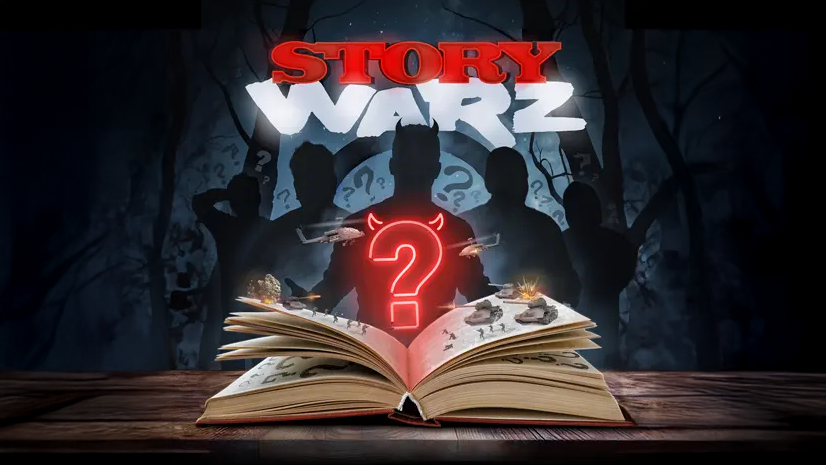
Story Warz: The New Comedy Podcast of Deception and Detection
Looking for a fresh comedy podcast that will have you laughing and guessing? Story Warz combines the perfect mix of storytelling, comedy, and competitive gameplay. Hosted by renowned Legion of Skanks comedians Big Jay Oakerson and Luis J. Gomez, this innovative...
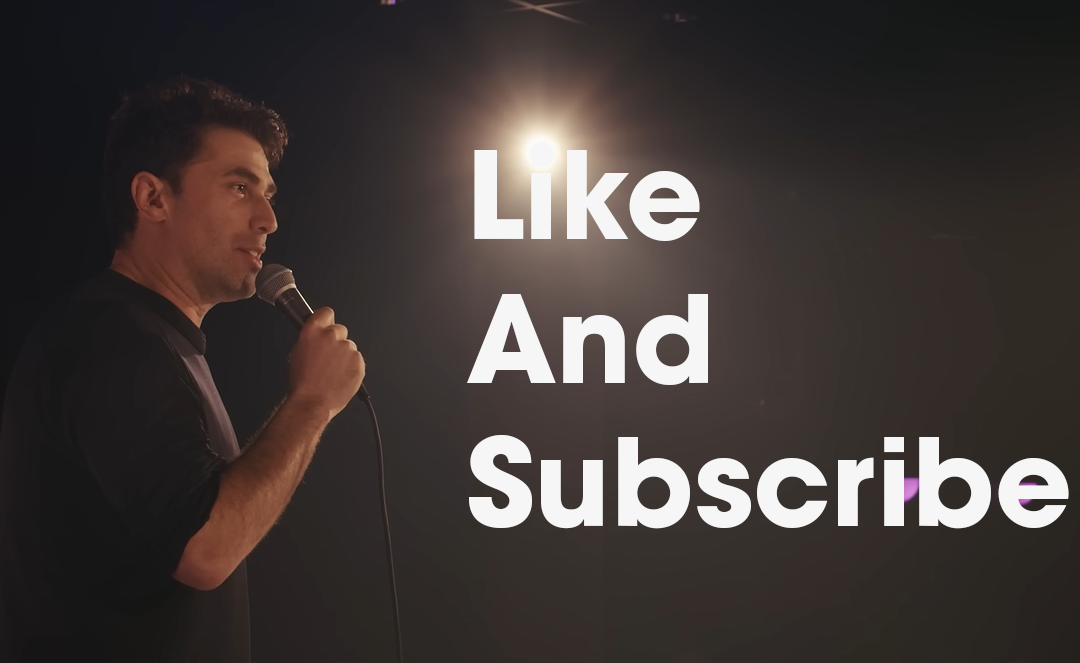
Adam Ray Release New Comedy Special: ‘Like And Subscribe’
Adam Ray returns with the release of his third comedy special, Like and Subscribe. A beloved figure in comedy circles, Ray has made a name for himself not just on stage and podcasts, but on the big screen as well, with impressive roles that showcase his dynamic...
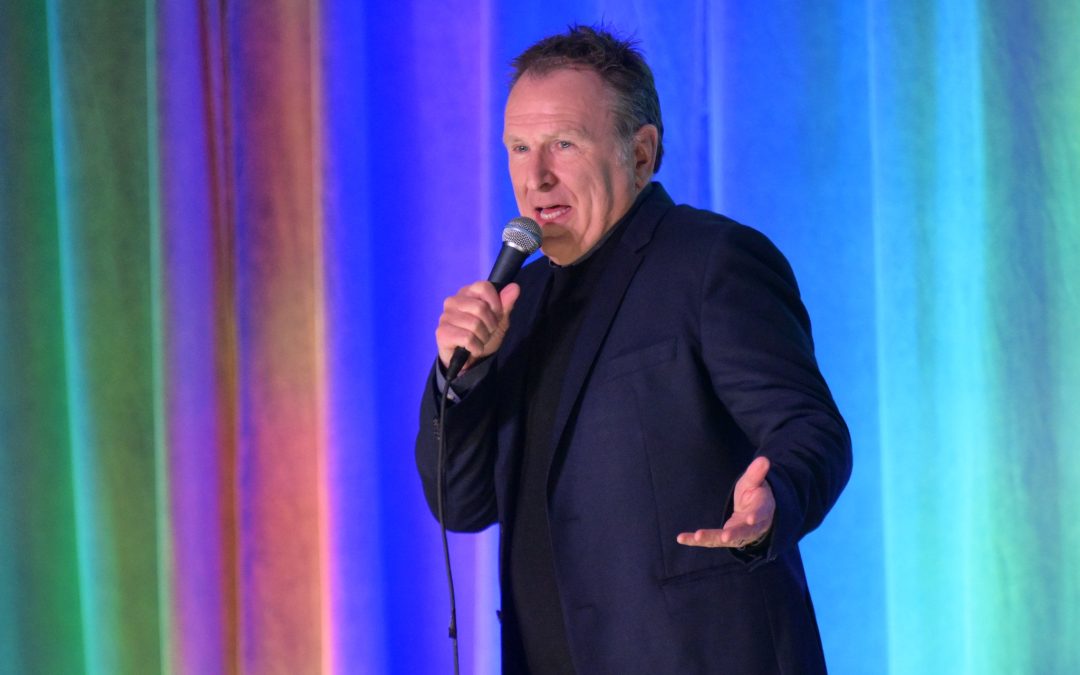
Colin Quinn Releases New Comedy Special: ‘Our Time Is Up’
In the ever-shifting landscape of digital content, comedy has found a resilient platform on YouTube, and the latest to grace this arena is Colin Quinn with his comedy special, Our Time Is Up, released on May 6. Quinn, known for his sharp wit and unapologetic...
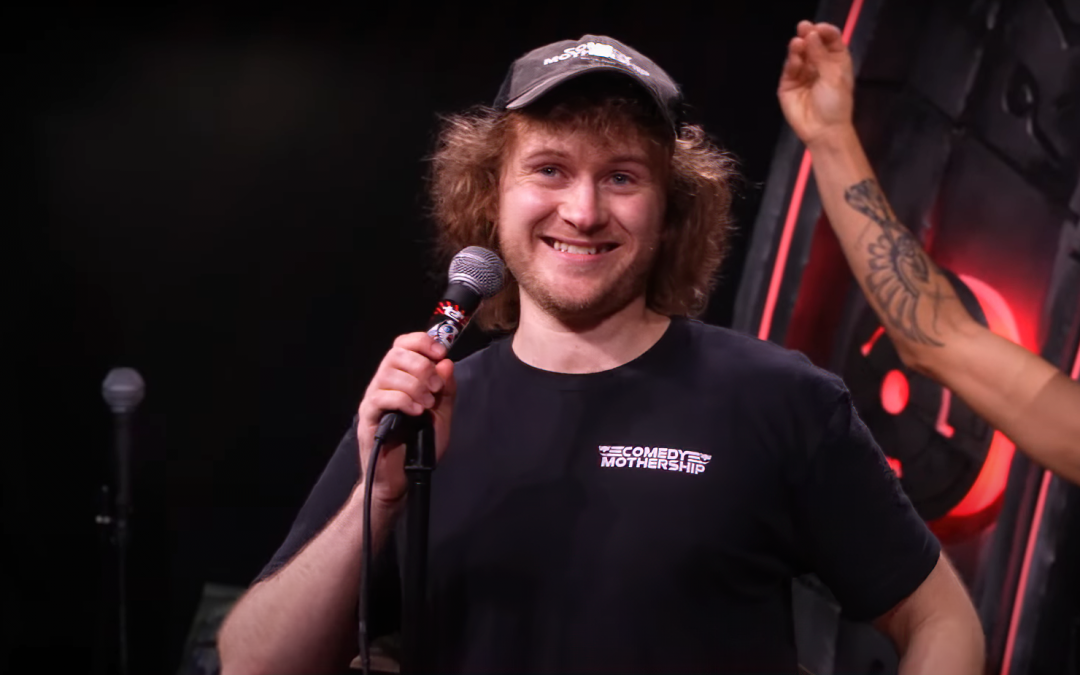
Casey Rocket Blasts Off as the New Regular on Kill Tony
In an exhilarating shake-up to the Kill Tony universe, fans of the live podcast were treated to a high-octane announcement: Casey Rocket has officially been named the newest regular, set to open the show with his inimitably eccentric comedy. Rocket is stepping in for...
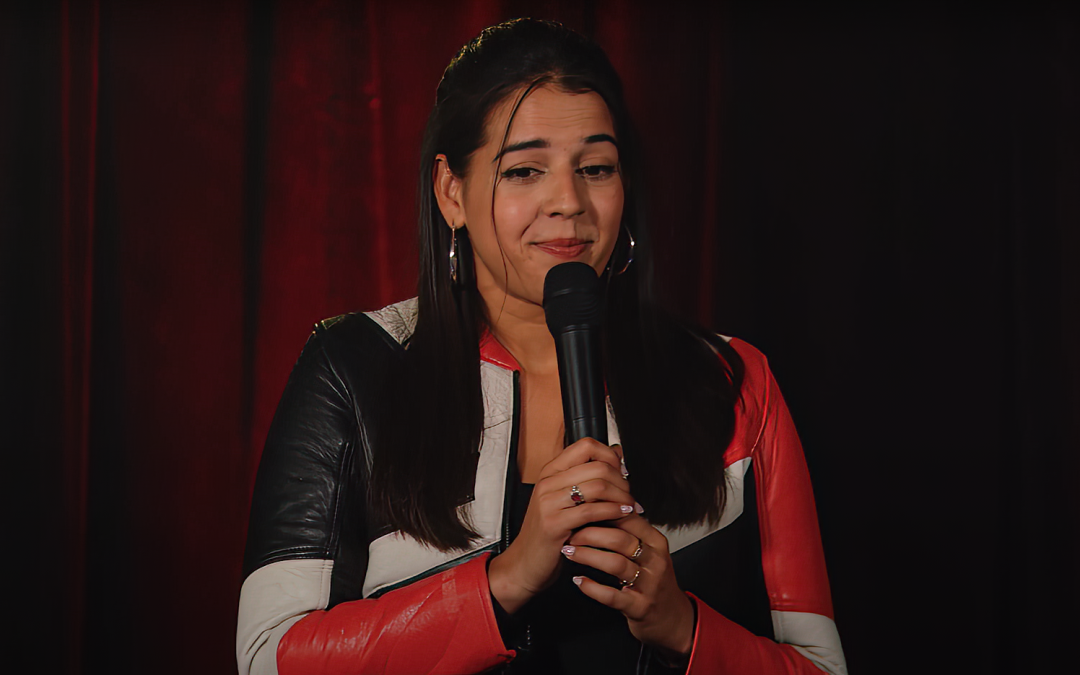
Kim Congdon’s New Standup Comedy Special: ‘Childless Milf’
Kim Congdon, a standup comedian known for her unapologetic humor and lively stage presence, has released her debut comedy special, Childless Milf. This release marks a significant milestone in Congdon's career, offering her growing audience a 30-minute feature of her...
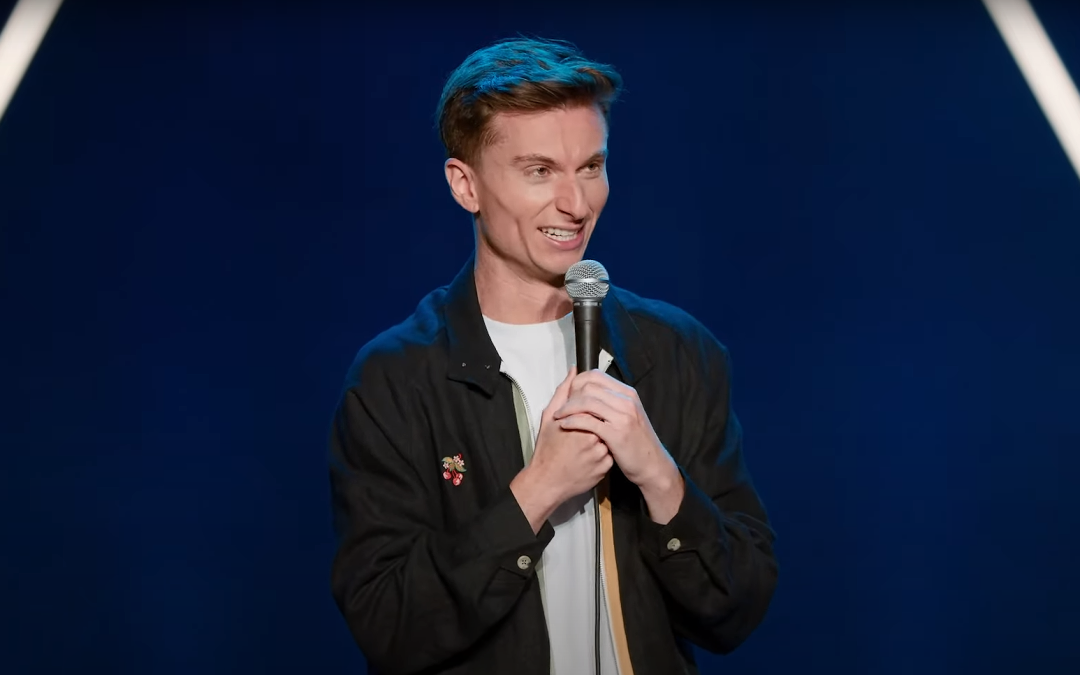
Trevor Wallace Releases His First Comedy Special: ‘Pterodactyl’
Trevor Wallace, known for his hilarious sketches and the Stiff Socks podcast, recently released his highly anticipated comedy special, Pterodactyl, exclusively on Amazon Prime. Wallace has gained impressive success in the world of stand-up comedy. With a distinct...
Related Articles
Trae Crowder Releases New Comedy Special: ‘Trash Daddy’
Comedian Trae Crowder, known for his viral videos as the "Liberal Redneck," has once again taken the comedy world by storm with his sophomore stand-up special, Trash Daddy. Released on YouTube via 800 Pound Gorilla Media on March 13, 2025, this one-hour special...
Adam Ray Release New Comedy Special: ‘Like And Subscribe’
Adam Ray returns with the release of his third comedy special, Like and Subscribe. A beloved figure in comedy circles, Ray has made a name for himself not just on stage and podcasts, but on the big screen as well, with impressive roles that showcase his dynamic...
Colin Quinn Releases New Comedy Special: ‘Our Time Is Up’
In the ever-shifting landscape of digital content, comedy has found a resilient platform on YouTube, and the latest to grace this arena is Colin Quinn with his comedy special, Our Time Is Up, released on May 6. Quinn, known for his sharp wit and unapologetic...
